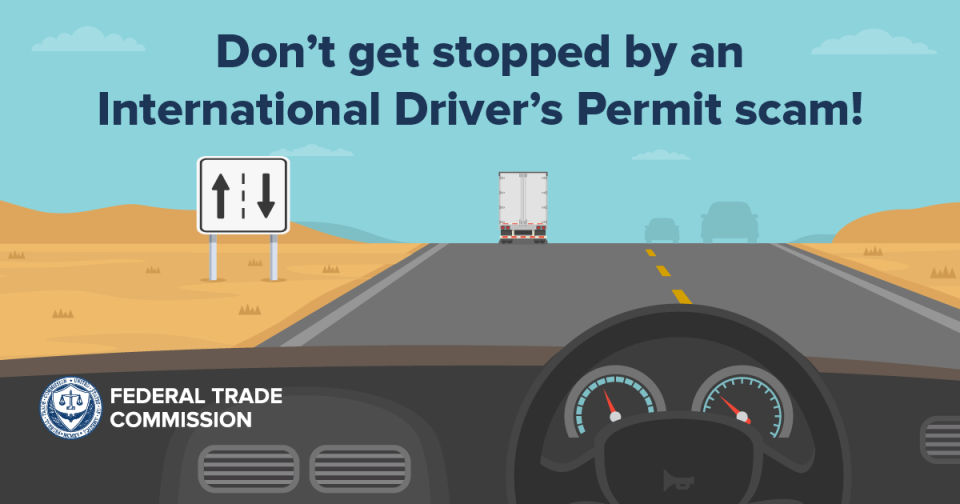Wondering if you need an international license to drive in a country you’re visiting? Every country has its own rules for visitors who want to drive. In some, like Canada, your U.S. driver’s license is all you need. Other countries require you to get an International Driver’s Permit (IDP). Scammers try to confuse you with fake IDPs and websites that not only take your money and give you nothing but can also cause you trouble abroad.
An IDP is sometimes known as an international driver’s license. It has your name, photo, and the information in your government issued driver’s license translated into ten different languages. You’ll carry it along with your U.S. driver’s license. To use an IDP with your U.S. driver’s license, the IDP must be issued in the U.S., so apply before you travel.
If you need an IDP, make sure you’re getting the real thing. Scammers create websites to sell fake IDPs or try to sell them to you in person or online for a hefty fee. But they’re just trying to steal your personal information or money. To make things even worse, the fake IDP is worthless and could cause legal problems and delays for you if you’re detained for using it to drive in a foreign country.
To avoid these scams:
- Check the Department of State’s website for rules on visitors planning to drive in each country.
- Know that there are only two active organizations authorized by the U.S. Department of State to issue IDPs: the American Automobile Association (AAA) and the American Automobile Touring Alliance (AATA).
- If the country you’re visiting requires an IDP and you have a U.S. driver’s license, apply at an AAA branch office in person, online, or by mail, or with AATA.
- Don’t believe a website that says you can apply online through a different company. It’s a scam.
Learn more about avoiding scams when you travel. And report any scams you see to the FTC at ReportFraud.ftc.gov.
Note: State Department authorized issuers updated July 16, 2025.


I have lived overseas and did not expect to stay for as many years as happened. It became apparent that I had to drive for work. I went to the country's license bureau and got an international.
Wish I had known this before leaving the country.
Good information and complete. Thank you j
It would have been more helpful if you had included the most visited countries that accept US drivers licences: U.K. France, Mexico& Italy to name a few. That would reduce the number of folks wasting their(&the go ernments) time.
good advise
Lets start by saying that the official IDP scheme is a scam as well. I cant expleain the fact that they issue the licence for only 3 years.